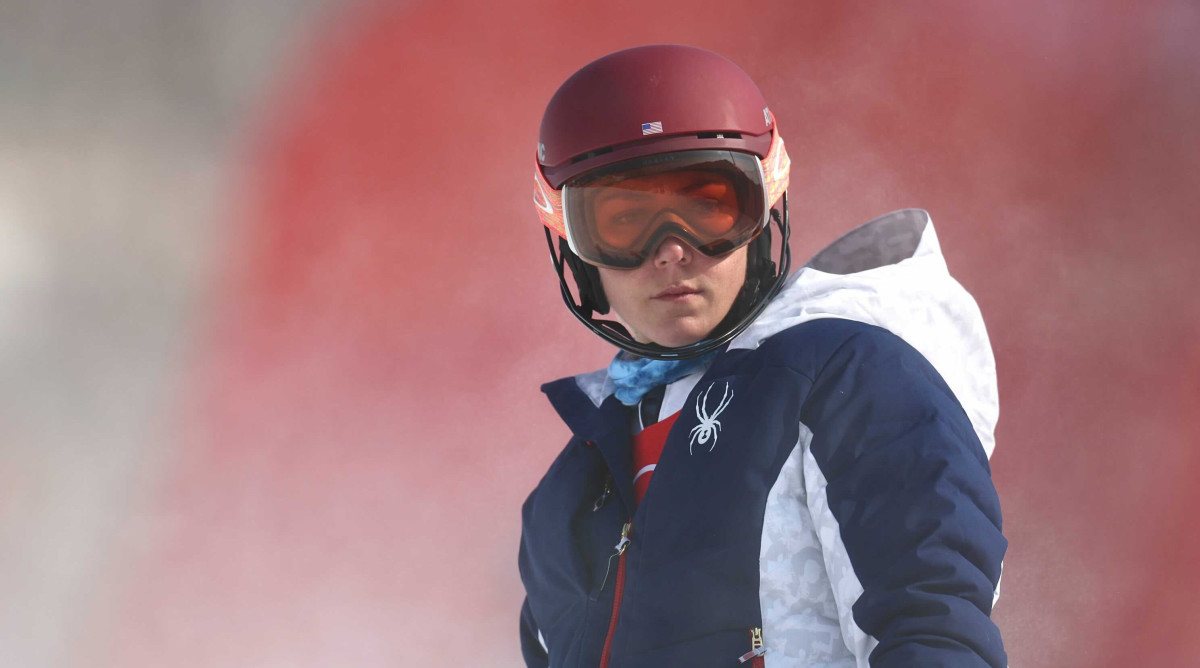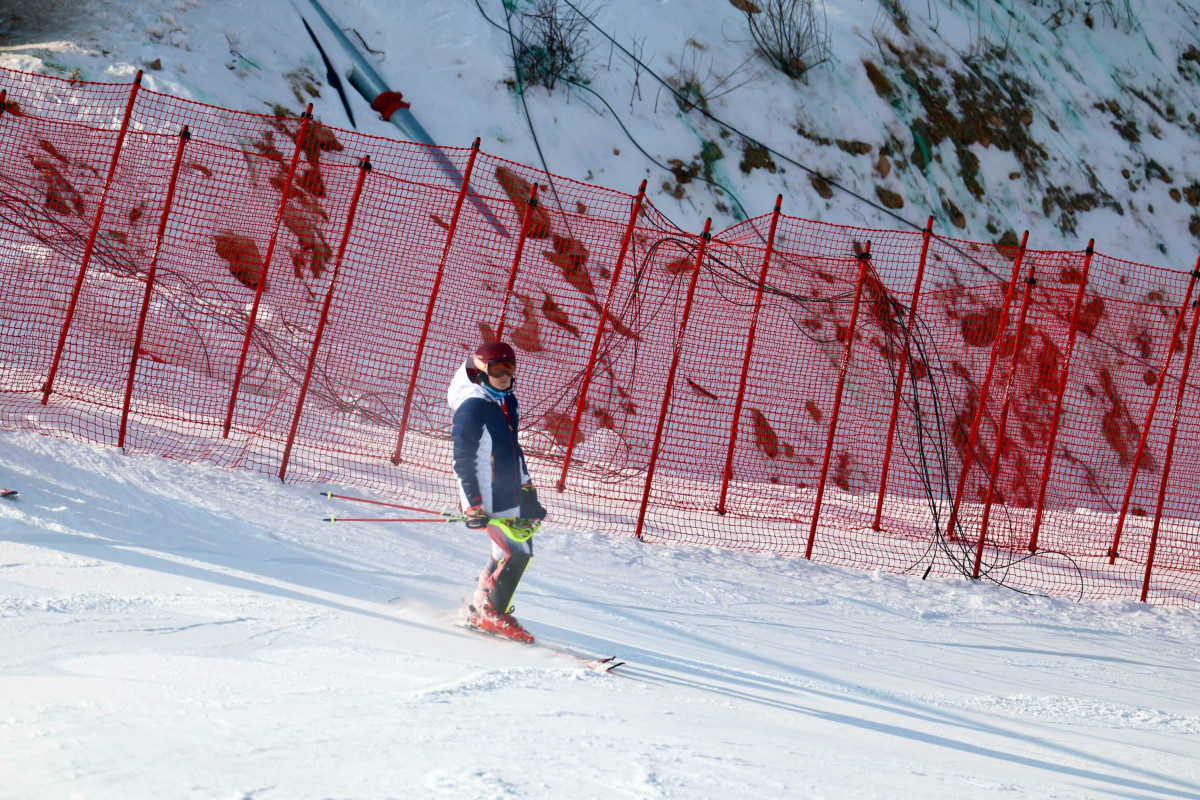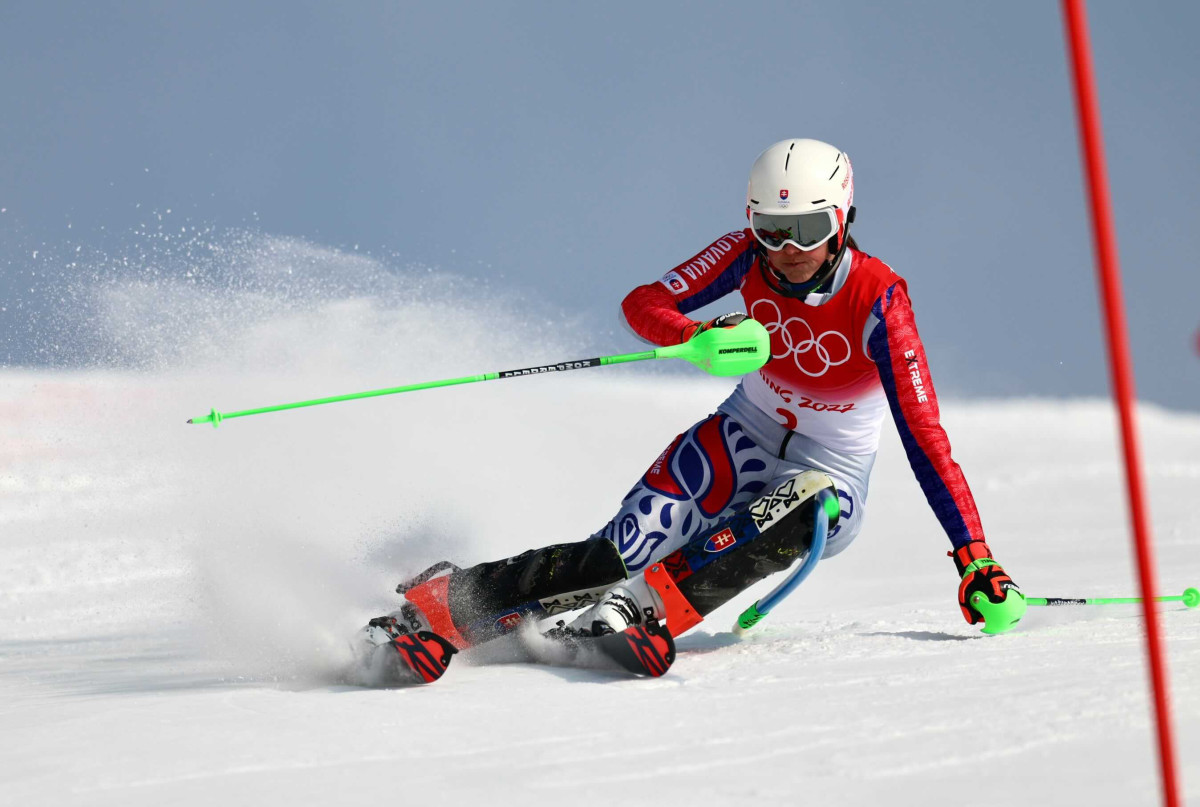Mikaela Shiffrin’s Tragic Loss Gives Her Perspective After Latest Olympic Miscue
BEIJING — Mikaela Shiffrin trudged to the left side of the slalom course, yards from the scene of her latest disappointment, and collapsed. At the top of the mountain, at the bottom of her confidence, she held her head in her hands, and she thought about betrayal.
That walk took her longer than her Olympic races.
Two days ago, the world’s greatest active skier flubbed a gate 11 seconds into her first run of the giant slalom and skied off the course. On Wednesday, she made it not quite five seconds into the first run of the slalom before she took a wide turn into the fourth gate, could not hold her line after the fifth and skied off the course again. It was the first time she failed to finish two consecutive technical races on the senior level since 2011, when she was 16. A second straight did-not-finish was an unfathomable result, one of the most shocking sequences in Olympics history.

She stayed on the side of the course, staring into space, as competitors jetted past her, vying for position in a race many people had expected her to win. Eventually she hauled herself up and skied down to the finish line, where she tearfully took questions, beginning with the obvious one: What happened?
Shiffrin paused for 29 seconds. “I was pushing,” she said finally. “Maybe it was just past my limit.”
After Monday’s failure, she focused on staying aggressive in her return to competition. She said she felt fine right up until the start line. But after skiing out again, she wondered aloud whether the pressure had caused her to overcompensate and be too aggressive.
She is 26 and has been dealing with pressure for most of her life. At 17 she became the youngest slalom world champion in history; a year later, in Sochi, she became the youngest skier to win an Olympic medal in slalom. Four years after that, she added another gold, in giant slalom, and a silver in the combined, but expectations for her were so outsized that some people viewed that as a disappointment.
“You feel like this moment is building and building and building, and you feel a bit weighed down by it, but I'm OK to feel that way,” she said. “I mean, it's taken a lot of years, and I'm not scared to feel a little bit weighed down by some expectations anymore.”

She felt prepared for Wednesday. She believed her mentality was strong. She felt ready to take aggressive lines, to lean on what her body knows how to do. But then her body betrayed her. She spent that period slumped beside the course searching for answers. She found none.
“My entire career has taught me to trust in my skiing, and that's all that I have to rely on on these race days,” she said. “And when the pressure is high—of course the pressure is high, but that didn't feel like the biggest issue today—just when there is pressure and there's some nerves and the feeling that I want to do well, I always just go back to that, like fundamental idea that good skiing will be there for me.” She began to cry, then said, “So it's not the end of the world, and it’s stupid to care this much, but I feel that I have to question a lot now.”
One of those questions is where she will race again at these Olympics. She is entered in the other three events, the super-G on Friday, the downhill on Tuesday and the combined on Thursday. Does she feel up to competing again?
“Yeah,” she said, and then laughed. “I mean, no. I will try to reset again, and maybe try to reset better this time, but I also don’t know how to do it better because I’ve never been in this position before and I don’t know how to handle it. The hill on the speed track looks pretty incredible, and I think it would be a pleasure to ski, but I also have some teammates who are really fast, and we have the athletes who can fill the spaces, so if I’m going to ski out on the fifth gate, what’s the point?”
That’s the best skier in the world wondering if she can finish a race. After the giant slalom, she tried to remind herself that this happens sometimes. Skiers—even Shiffrin—make mistakes. But she cannot write off a second straight disaster as bad luck.
“Honestly,” she said, “I’m at a loss.”

In the past, she might have turned to her father, Jeff, who always seemed to have answers, to big questions and little ones. But he died two years ago last week in a fall at the family’s home in Edwards, Colo. She said that grief will help her find perspective. “But right now—right now I would really like to call him, so that doesn't make it easier,” she added. “He would probably tell me to get over it. But he’s not here to say that, so on top of everything else, I'm pretty angry at him, too.”
She will try to feel grateful: She still has those three medals in her closet at home in Colorado. Her mother, Eileen, is in Beijing, as is her boyfriend, Aleksander Aamodt Kilde of Norway, who on Tuesday won his first Olympic medal, a bronze in the super-G. Despite a pandemic, she is here, racing at the Games on a sunny, 20-degree day.
“As disappointed as I feel and as much as I'm feeling right now, there's so much to be optimistic about,” she said. But, eyes glistening, she added, “It just feels like there's a lot to be disappointed about right now.”
She was supposed to add to her Olympic medal haul this week. Instead, she has recorded some harsher numbers. Two races. Sixteen seconds. No answers.
More Olympics Coverage:
